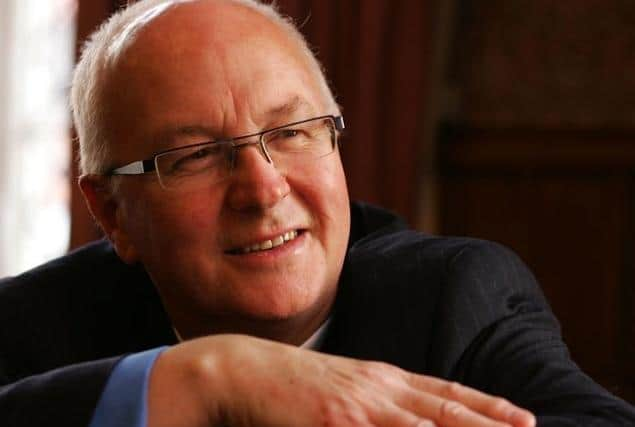Meeting the passport challenge
and live on Freeview channel 276
To help combat the coronavirus pandemic, entry to venues such as cinemas, theatres and licensed premises will be restricted to those who are able to show that they have received both Covid vaccinations as well as a ‘booster’ jab.
The Northern Ireland Executive believe that such a requirement is necessary to combat the disease, while others see the requirement as a restriction of personal freedom and a medical over-reaction.
Advertisement
Hide AdAdvertisement
Hide AdPassports of a more traditional kind have also been in many minds since ‘Brexit’ took effects in January.


Many feel that possession of an Irish passport might make travel in Europe easier, as opposed to the new ‘Blue’ British version. Besides, it is reported that a free Irish passport has attracted even those who hold a die-hard loyalist position.
The concept of a passport dates back to the 16th century, and was almost certainly a French invention, with a ‘passeport’ being simply what it said, a permission to pass through a port.
Shakespeare is guilty of an anachronism in the famous speech by Henry V on the eve of the Battle of Agincourt in 1415. Aware that some of his troops may not have had the stomach for the fight against a numerically superior French army, the king addressed any who were wavering and said, “Let him depart, his passport shall be made”.
Advertisement
Hide AdAdvertisement
Hide AdGustave Dore was a distinguished French artist and illustrator, particularly well-known for his engravings of Biblical scenes. On one occasion he was stopped at an international border and asked for his passport. It was not in his possession, and to prove his identity he took a crayon and produced a sketch in his characteristic style. Seeing the sketch, the border official allowed the artist to continue his travels. His artistry proved his identity.
The New Testament tells of one whose identity was confirmed by his accent. Peter was warming himself beside a blazing fire when a servant girl accused him of being a follower of Jesus, who was on trial nearby. Twice Peter vigorously denied any link with Jesus, but the girl was insistent; ‘Surely thou art one of them: for thou art a Galilean, and thy speech agreeth thereto’ (Mark 14; 70). As Eugene Petersen puts it in ‘The Message’, “You’ve got to be one of them. You’ve got ‘Galilean’ written all over you”.
Peter was later noted for a more worthy reason. When he spoke out courageously before the Jewish Council, the members of that Council were astonished and ‘took note that he had been with Jesus’ (Acts 4;13). His courage proved his spiritual identity.
All of which leads to a challenging question which we would all do well to ponder; ‘If I was arrested for being a Christian, would there be enough evidence to convict me?’